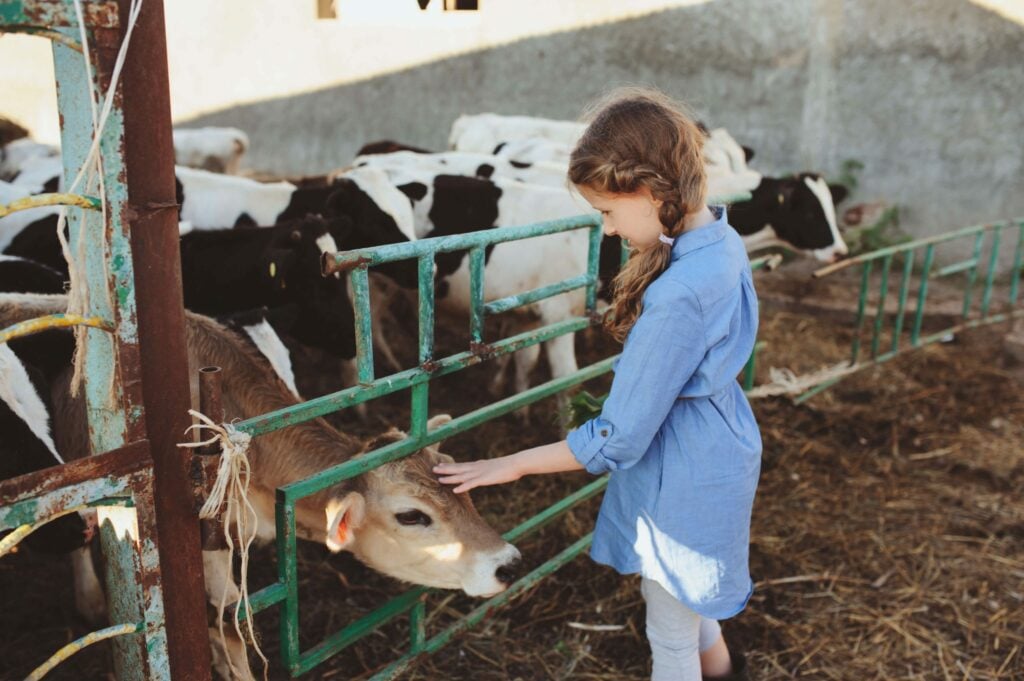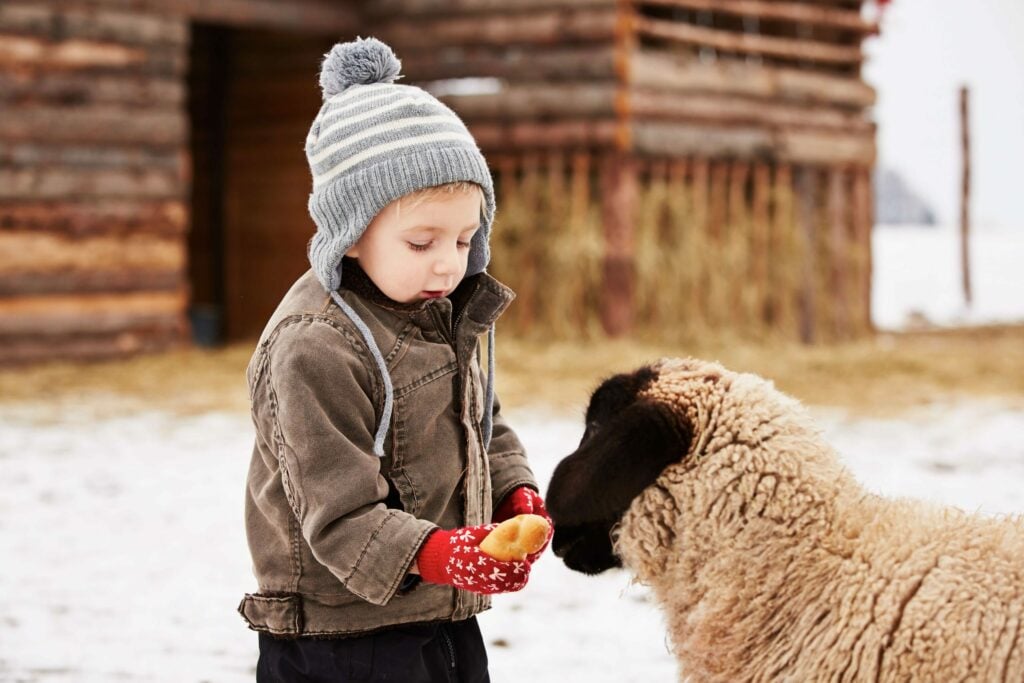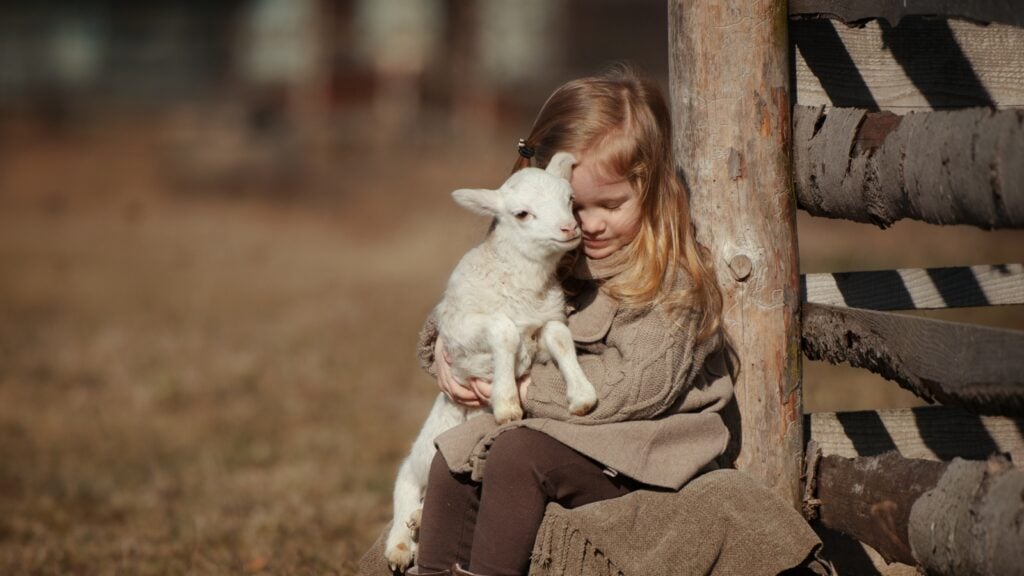Children are less likely to perceive animals as food, according to a just-published study. And, as a result, kids generally consider eating meat as “less morally acceptable” than adults do, researchers say.
The research was published in peer-reviewed academic journal Social Psychological and Personality Science. It aimed to assess speciesism across age groups, including people’s opinions on how various animal species should be treated.
Researchers surveyed 479 people, including children (aged nine to 11), young adults (18 to 21), and adults (29 to 59).
They discovered that children were less likely to see a moral hierarchy between humans and non-human animals. Younger participants were also less likely than adults to categorize farm animals as food, believing that animals like pigs deserve better treatment.
“Our findings suggest we need to consider how we talk to children about humans’ relationship with non-human animals,” explained lead author Luke McGuire of the University of Exeter. “Children are motivated to consider harm against the natural world, including animals, and as such we might want to consider beginning these discussions about food decisions early in life.”
‘Moral double standards’

The results suggest that humans are not born with the mental processes used to justify meat consumption. Rather, they are learned over time from various social settings. Parents, guardians, and older family members often set the standard for which animal meats are “acceptable” to eat (cow and chicken meat, for example) and which are not (“pets” such as cats).
“People regularly hold ethical values that contradict each other and employ moral double standards,” the study reads. It highlights that despite widespread appreciation for pets, concern for wild animals, and contributions to animal welfare charities, “many people also accept great harm to some animals. For example, people readily justify cruel treatment that often happens in factory farming,” the study says.
Opportunity to fight climate crisis

McGuire continued: “As with all social psychological processes, it is worth stepping back to consider where these attitudes and cognitions come from. Critically examining our relationship with animals ought to be a primary goal of tackling climate change and one that begins in childhood.”
A growing bank of research is unearthing connections between animal agriculture, especially beef production, and the accelerating climate crisis.
One January study found that replacing animal protein with plant-based foods could cut food-related emissions by 61 percent. Reducing meat and dairy production can also help protect wild animals, save water, and free up vast amounts of land.
“Human food production and consumption are related to timely global issues like climate change,” McGuire’s recent study on speciesism reads. “Attempts to mitigate these global problems might benefit from open dialogues regarding our relationships with animals.”
“The evidence presented here suggests these dialogues ought to begin in youth when the social construction of the way humans think about animals begins.”






